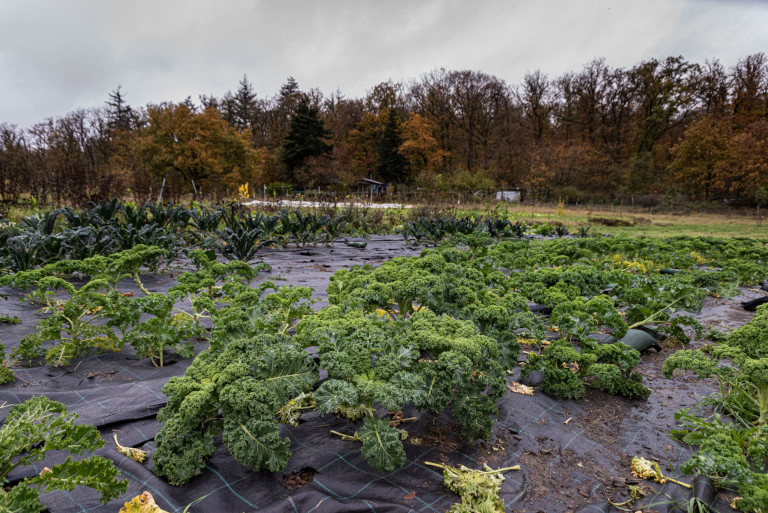How can restaurants serve more regional produce? A networking event at the Creativity and Social Innovation Hub Marburg (CIM) brought together local restaurant operators, suppliers, civil society actors and employees of the city and district to discuss this question. Kollektiv von Morgen, ARC2020’s partners in Marburg, Germany, provide an update from this Food Dialogue.
On June 10, 2024, stakeholders from the Marburg area met for the CIM Food Dialogue to discuss opportunities and strategies to get more regional food into local restaurants. Operators of local restaurants, suppliers, civil society actors and employees of the city and district networked and planned further steps.
 Professor Simone Strambach, director of the CIM Hub, talks about the challenges for gastronomy in getting more regional food into restaurants. Photo: CIM
Professor Simone Strambach, director of the CIM Hub, talks about the challenges for gastronomy in getting more regional food into restaurants. Photo: CIM
Marketing and taste
One thing quickly became clear: more regional produce in restaurants not only requires the willingness of the restaurants themselves, but also needs good marketing. Because if customers in restaurants do not understand why certain dishes are suddenly more expensive and do not see any personal added value in them, these dishes will not sell.
Businesses that already work with regional products reported the need to adapt their kitchen processes and offerings according to the season. The salad plate with lettuce and cucumber will not be available in winter. It takes creativity and curiosity to create an equally tasty salad from what is available locally. One business reported that the kale salad on offer initially met with scepticism from customers, but ultimately won them over with its fantastic taste.

Varieties of kale at Gärtnerei Petersille, November 2023. Photo: Robert Bosch Stiftung / Heinrich Völkel / Agentur Ostkreuz
And that is exactly what is needed, many of the participants agreed: the taste of regional dishes simply must convince. Then offerings with local pulses and seasonal vegetables, for example, will be attractive. Supports and joint strategies for marketing products and dishes made from regional ingredients are also necessary. Otherwise, it will be almost impossible for businesses to keep up economically with competitors.
Critical infrastructure
And new logistical structures are needed: hubs and suppliers, where small producers’ regional goods are aggregated and distributed from, seem indispensable. Fortunately, the first structures and willingness to provide support are already in place with two local suppliers. nearbuy and LogRegio – which, together with the CIM Hub and kollektiv von MORGEN e.V., hosted the event – are in the process of driving forward and further expanding this local infrastructure, including with a digital marketplace for producers and buyers.
 Susanne Geßner from nearbuy explains the digital tool for regional logistics. Photo: CIM
Susanne Geßner from nearbuy explains the digital tool for regional logistics. Photo: CIM
The CIM Food Dialogue was a successful networking event between stakeholders, and the start of further cooperation for more regional products in Marburg’s gastronomy.
ARC2020 partners with kollektiv von MORGEN and the Arbeitsgemeinschaft bäuerliche Landwirtschaft Hessen in the project “Rural Europe Takes Action – Germany”, supported by the Robert Bosch Stiftung.





